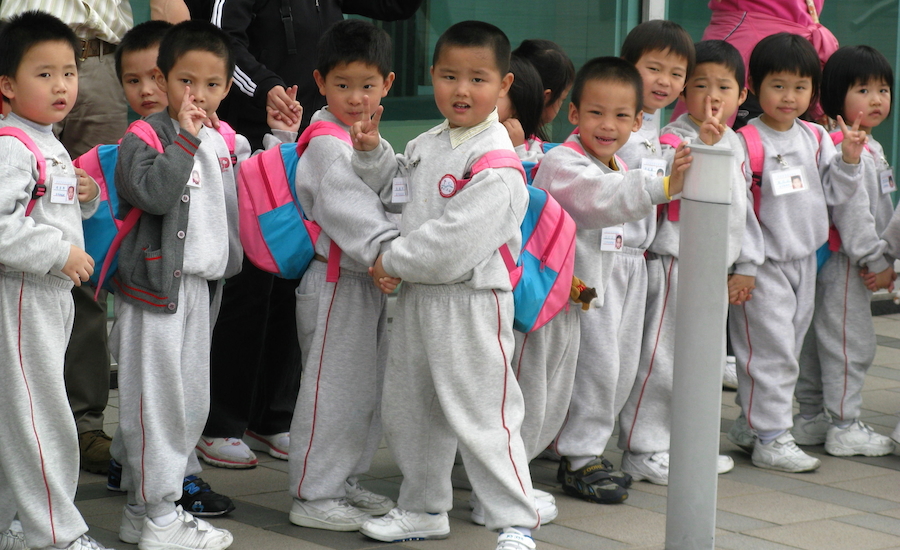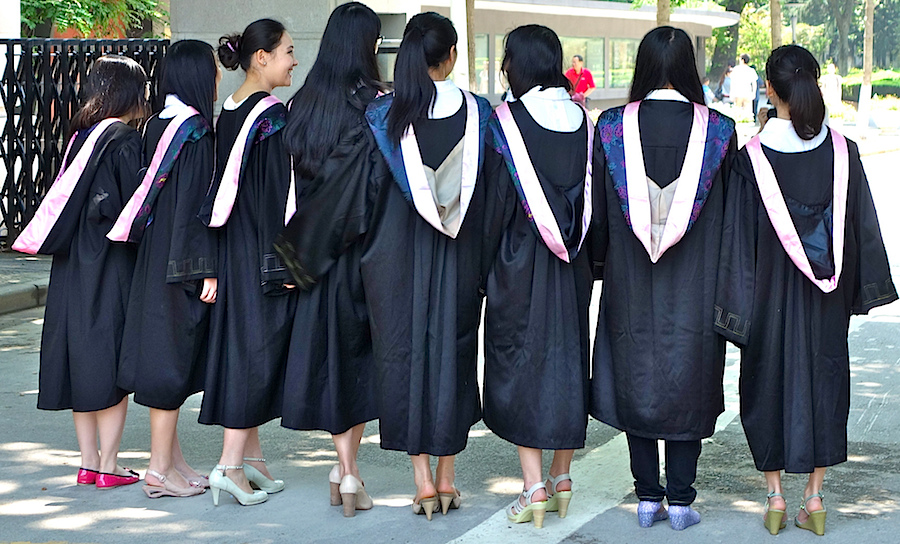Recently, there’s been much media attention on education reform across the United States.
Starting in mid-April, school children throughout the country took part in tests aligned to nationwide proficiency standards, called the Common Core, of which the results act as a benchmark for teacher and school “accountability”.
Yet many parents across the country are “opting out”, keeping their children at home or engaging them in other learning activities on test days as an act of protest. This has sparked a heated national debate about whether recent educational reforms are heading in the right direction.
Central to this new educational system are the publicly funded but privately run charter schools, which purportedly out-perform public schools in standardised tests and, their proponents claim, provide more “choice” for quality education.
By forging a hierarchical school landscape that relies heavily on testing, the U.S. education system is becoming increasingly similar to our model in Hong Kong. Realising this presents us with an opportunity for reflection.
On the surface, Hong Kong’s education system has much to be proud of. In the latest Programme for International Student Assessment (PISA) in 2012, we ranked third in mathematics and second in science and reading out of 65 participating countries.
In public discourse, we treat our consistent achievement in such tests as a clear indicator of the efficacy and quality of our education system. In the rhetoric of charter school reformers in the States, a system like ours is exemplary for providing a high level of “choice” in schools, incentivising the provision of better education in a competitive market.
The danger of being content with these superficial statistics, however, is that we accept the educational inequality they mask and equate quality test preparation with quality education.
Charter schools in the United States are beginning to show the systemic faults inherent in our own education system. On April 6, the New York Times published a damning report on Success Academy – an ever-expanding network of charter schools in New York state that use a variety of high-stress strategies to ensure top scores in standardised tests.
Some of practices are downright extreme, such as forbidding young students to use the bathroom during practice tests. Other less blatant tactics, however, might sound familiar to students and parents in Hong Kong.
For example, Success Academy’s high attrition rate reveals that many weak students are systematically weeded out before they can tarnish the school’s testing statistics.

Attrition of weak students happens in Hong Kong’s elite schools also, but these schools have the added advantage of complete control over their own admissions system. This means that top results are self-perpetuating even in the absence of good quality teaching and education.
Inequality is part and parcel of any hierarchical education system. Despite their purported meritocratic premise, charter schools, even in their best form, take away the imperative and resources to improve public schools.
In Hong Kong’s case – putting aside international schools and the unique problem they represent – elite schools are incentivised to ensure high test scores, not necessarily quality education.
Able to cherry-pick students, they filter out applicants who are not already well equipped with a privileged background and all the educational advantages that entails. Disadvantaged students face considerably worse prospects when it comes to attaining the high test scores that determine university admissions.
Even advantaged students, the supposed winners of the system with access to “choice”, reap nothing much more than high scores and high stress in the end. In a system that uses high-stakes testing as the primary benchmark for school quality, less quantifiable aspects of a mind-expanding education are, expectedly, not emphasised.
From this vantage point, the goals of the U.S. reforms seem misguided. Our highly privatised, hierarchical education landscape might churn out high PISA scores, but it fails to reward any element of a quality education that is not readily quantifiable and, more importantly, exacerbates inequality disguised as meritocracy.
It remains to be seen what the “opt-out” movement will achieve, but parents and students in Hong Kong can certainly reflect on the lessons of the U.S. education debate.
We desperately need our own progressive public discourse on the parallel problems manifest in our trusted education system as a step forward for education quality and equality.





Reader Interactions